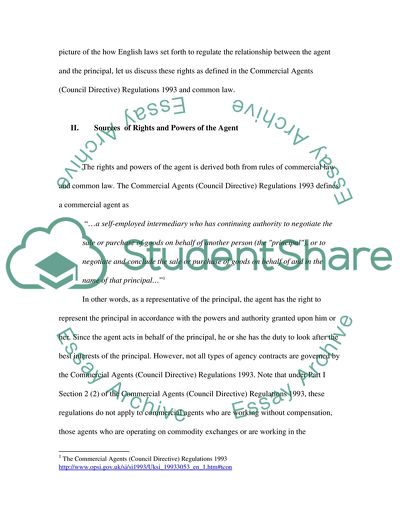Cite this document
(Rights of an Agent under Rules of Commercial Law and Common Law Case Study, n.d.)
Rights of an Agent under Rules of Commercial Law and Common Law Case Study. Retrieved from https://studentshare.org/law/1734848-rights-of-an-agent-under-rules-of-commercial-law-and-common-law
Rights of an Agent under Rules of Commercial Law and Common Law Case Study. Retrieved from https://studentshare.org/law/1734848-rights-of-an-agent-under-rules-of-commercial-law-and-common-law
(Rights of an Agent under Rules of Commercial Law and Common Law Case Study)
Rights of an Agent under Rules of Commercial Law and Common Law Case Study. https://studentshare.org/law/1734848-rights-of-an-agent-under-rules-of-commercial-law-and-common-law.
Rights of an Agent under Rules of Commercial Law and Common Law Case Study. https://studentshare.org/law/1734848-rights-of-an-agent-under-rules-of-commercial-law-and-common-law.
“Rights of an Agent under Rules of Commercial Law and Common Law Case Study”. https://studentshare.org/law/1734848-rights-of-an-agent-under-rules-of-commercial-law-and-common-law.


